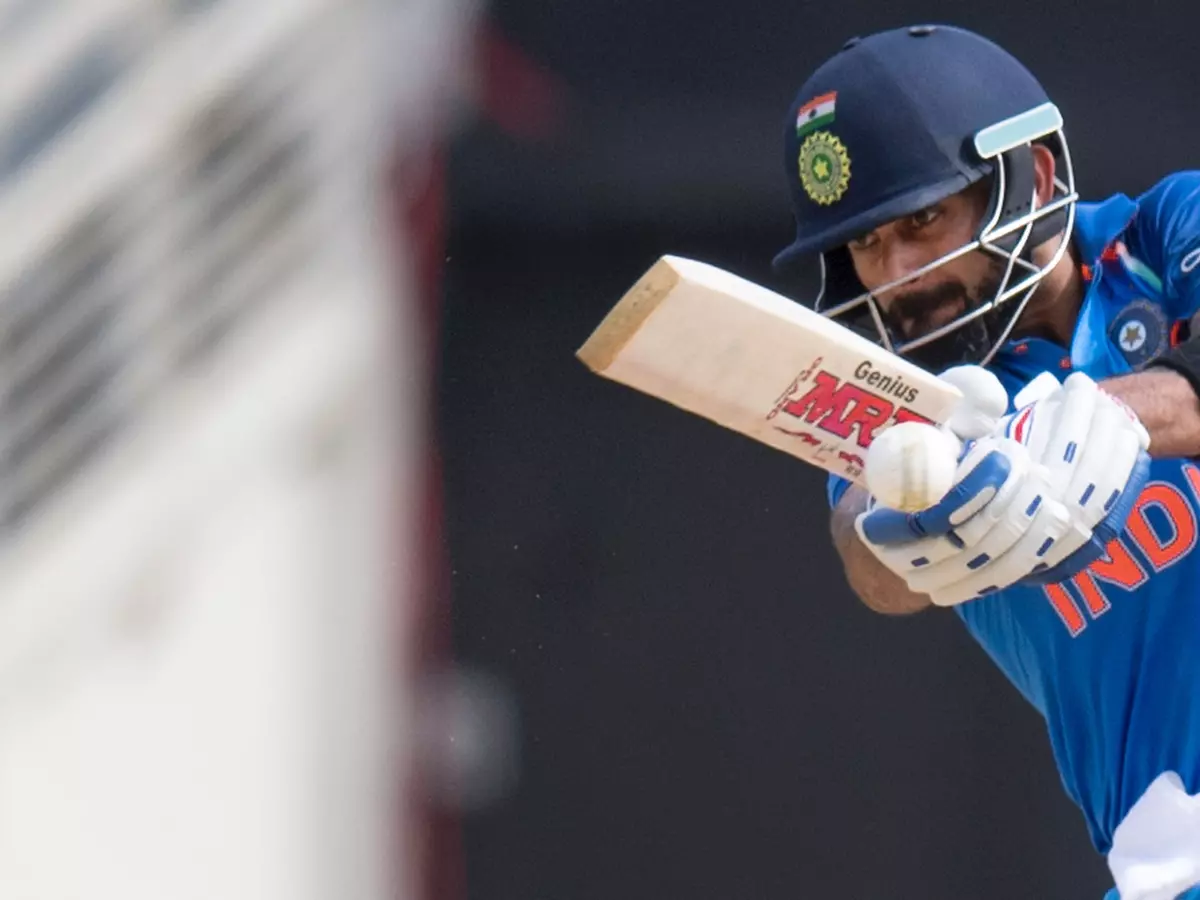This Is How A Virat Kohli Shot Finds Itself Into A Maths Lesson
Well it had to happen some day!

Meet the new-age video teachers who have not only brought the classroom to the smartphone but made learning fun with visual effects, animation, even sundry objects lying around the house.

afp
Anita Kishore, a teacher with education app Byju's, firmly believes no subject is boring and it's the teacher's job to create interest in the child. "We start each session with a hook question that connects with the child's interests," says the 30-year-old teacher who is a gold medalist in engineering and management. This could range from cricket to cartoons.
Byju's has an annual subscription of 4 lakh students. "We look for teachers who are passionate about the subject, and also have a strong screen presence to deliver the lesson in a format that students like and can relate to," says Byju Raveendran, founder-CEO of the edtech startup.
Poonima Lodha, a teacher with online learning app Vedantu, had never watched a cartoon while growing up. But faced with the task of explaining math problems to a seven-year-old, this IIT-BHU graduate switched on to figure out what the popular Pokemon series was about. "I realised I had to explain problems and solutions in a way a student would understand," she says.
Roshni Mukherjee, who started Examfever in 2011 with little more than a smartphone and oodles of passion for teaching, is always on the lookout for innovative aids. A leisure trip to Bengaluru's Lalbagh gardens ended up with her shooting weeds for her biology video.

bccl
"I try and use everyday objects to explain concepts in science and maths because most of my students are from backgrounds where they do not have access to well-equipped science laboratories. I use spoons, beads and other things so they can try the same experiments at home," she adds.
Young teachers like Anita, Roshni and Poornima are quite a welcome break from the rote model usually used in India. And the change is apparent. Aditya Kurup, 13, used to struggle with concepts in physics till last year when he began to use the Vedantu app. "Now I am ahead of my class in physics. A phenomenon like tides is explained with just a picture in school but my online teacher sent me videos that helped me understand the concept much better," the Class 8 student says.
What is common between Alfred Hitchcock and strategic management? Apparently a lot. Thirty-five-year-old D M Arvind Mallik was taught strategic management through Hitchcock movies like Pyscho and Twelve Angry Men in his management class. It was a lesson he never forgot.

afp
Now an assistant professor at PES Institute of Technology and Management in Shivamogga, Karnataka Mallik introduced the concept of "flipped classroom" as early as 2011. Students can watch his pre-recorded lectures online, and do their homework and project discussions when they are in class. His lectures are accessible through Whatsapp, Facebook, podcasts to help prepare for exams. The results are tangible: A 97% aggregate pass mark in the last four years.
"Initially students and management were reluctant but I was determined to re-imagine our education process," Mallik says. Last year, he introduced virtual reality in the class. "I believe in doing things differently. If not 50, but even if one student is motivated I would think my job is done,"he adds.
Byju's, clearly the big dada of online learning, has a 200-member team researching content. It combines expertise in gaming with the technical know-how of a film studio to create visual effects, animated cartoon characters, and 3D to explain seemingly boring topics like electric current or the shape of a rhomboid.
Many lessons have come through real-life experiences. Vedantu is spearheaded by four IIT buddies, who started teaching children of factory workers in Punjab's Barnala town in 2006. Soon their students were cracking the JEE. Now,Vedantu has scaled up to 450 teachers and 40,000 registered students in 380 cities of India, West Asia and Singapore.

bccl
Examfever has 2.7 lakh subscribers and 5,500 videos. "A girl from a very small town emailed me saying that her conservative family did not allow her to go out for tuitions but my videos had helped her. She said I was her 'pocket tutor'. That email just stayed with me," says Mukherjee. Her website and app offer free content for maths, sciences, tips for exams, online tests and a window to interact with her every Wednesday.
Byju was a student in a Malayalam-medium school who learnt English through football and cricket commentary on BBC radio. A star student who was deeply interested in sports, he wanted to spend as little time as possible on books ¡ª so he would have time to play. "Children these days are not encouraged to ask questions. At Byju's we are trying to explain concepts so clearly that they can make questions rather than just solve them," he says.

afp
Investing in kids' education can give big returns. A recent report by KPMG and Google estimated that online education will be a $1.96 billion industry by 2021. What's more, users who are happy to pay for content will grow six times, from 1.6 million in 2016 to 9.6 million in 2021.
Numbers apart, online education provides a democratic platform for evaluating teachers, unlike a traditional classroom where only students are graded. Vedantu co-founder Vamsi Krishna says students rate teachers based on their experience, which affects their overall rank and earnings. "We also have an algorithm to assess if a student is lagging and which aspects the teacher needs to improve on," he says. At Byju's, if the student does not understand a concept or like the way their class is going, they can request for a change.
